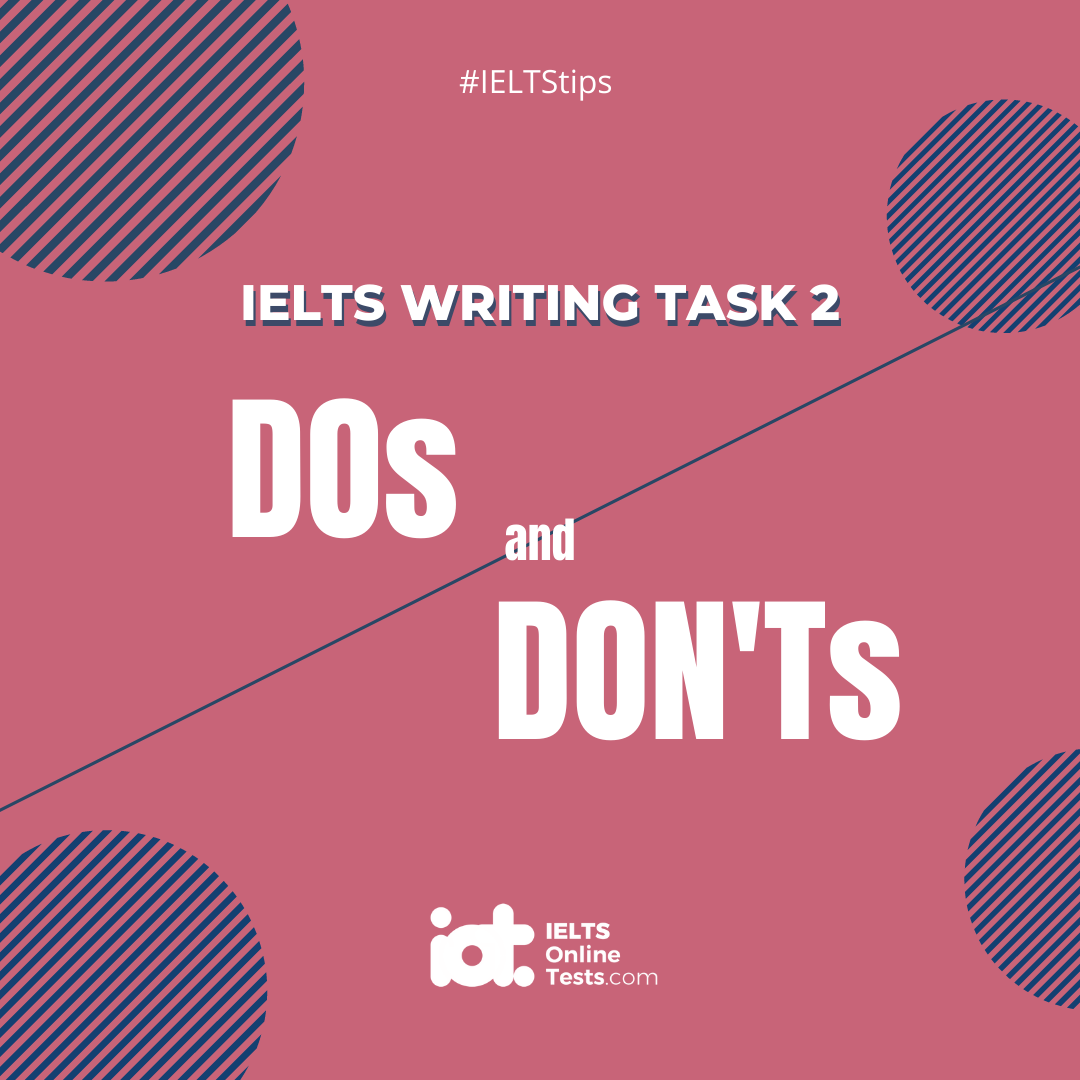写雅思大作文的时候,我们有哪些需要注意的?今天为大家总结了雅思写作中的“做”与“不做”。IELTS Writing Task 2 (also known as IELTS Essay Writing) is the second task of your IELTS Writing test. Here, you will be presented with an essay topic and you will be scored based on your ability to respond to the topic.
You need to write at least 250 words and justify your opinion with arguments, discussion, examples, problem outlining, proposing possible solutions and supporting your position. You will have approximately 40 minutes to finish your Essay Writing. IELTS Writing Task 2 carries more weights than Writing Task 1.
DO | DON’T |
- analyse the topic
- respond to all parts of the prompt fully.
- spend the first five minutes planning your essay
- in the introduction: Paraphrase the task and state the aim of vour essav in a thesis statement
- divide your essay into paragraphs (min. four: introduction, two main body paragraphs, conclusion)
- start each paragraph with a topic sentence
- provide a reason and an example for each of your arguments
- summarise the points made in the essay in the conclusion
- if appropriate, state your opinion in formal style (e.g. It is my firm belief that)
- use formal vocabulary (ex: keep --> - maintain: make sure --> ensure) TIP: words that sound or look more French, Spanish, Italian or Portuguese will usually be more formal.
- use passive voice to sound more formal and objective (e.g. The film will be shown...)
- avoid repetition by using synonyms (e.a. important = vital = essential = crucial)
- use formal linking words (e.g. despite, nevertheless, furthermore)
- use complex sentences
- proofread your work to avoid simple mistakes
- make sure you’ve written at least 250 words
| - DON’T use contractions (e.g. I don't --> I do not)
- avoid being personal (e.g. I, me. my)
- DON’T use emotive language (e.g. disgusting, fabulous)
- DON’T use only personal examples
- DON’T use colloquial expressions (e.g. I had great time)
- avoid simple vocabulary (e.g. say, think, bad) and basic linking words (e.g. and. but, also)
- DON’T repeat the same vocabulary throughout your essay
- DON’T write simple sentences (e.g. Everyone thinks it's true. I disagree.)
- DON’T use overgeneralisations (e.g. everyone, always, never, all)
- DON’T copy the task in your introduction
- DON'T forget to answer ALL parts of the task
- DON’T write less than 250 words
- DON’T forget to summarise and conclude your essay in the last paragraph
- DON’T use examples or arguments unrelated to the topic
|








